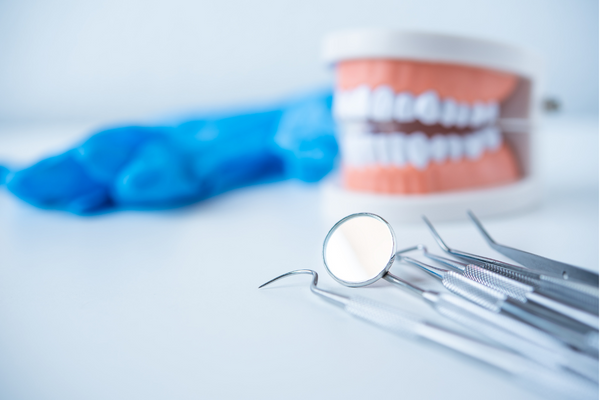When your mother told you to brush your teeth as a child, little did we know then that she was such a wise woman. Now more research has connected a healthy mouth and a healthy lung. Understanding this connection is important for Alpha-1 patients and others with COPD.
Periodontal disease, also known as gum disease, is a very common condition. All of us have dental plaque, a film that forms on teeth. However, when the bacteria found in plaque begin to colonize in the gum tissue and cause an inflammatory response it is called periodontitis. Dental surveys show that more than half of the population has periodontitis and one study found that the incidence in Alpha-1 was 72% despite tooth brushing. As the disease progresses, teeth may become loose, and the gums begin to recede. If left untreated, loss of bone tissue creates a less stable base for the teeth, meaning loose, shifting teeth, or complete tooth loss. At this point, there is added concern for poor nutrition, lower self-esteem, and a lower quality of life.
The fact that respiratory disease and periodontal disease are connected may seem far-fetched but there is plenty of evidence to support it. First, there are more bacteria in the mouth than in the lungs and we all breathe in some saliva rich in bacteria every day. Gum disease is more common in chronic obstructive pulmonary disease patients, likely from past effects of cigarette smoking, lowered immunity, and poor tissue healing; and more gum disease means more bacteria. Lastly, gum disease causes systemic inflammation, a term used to describe more inflammatory proteins in the bloodstream that can contribute to diseases far from the mouth. For example, an inflammatory protein called interleukin-1 (IL-1) is elevated in the blood from gum disease, and this protein is inhibited by alpha-1 antitrypsin.
When respiratory and periodontal disease are diagnosed in one individual, it is important for the dentist and pulmonologist to function as a team to treat both conditions.
The dentist is able to assess the extent of inflammation and tissue loss. Scaling procedures cleanse the gum pockets from debris and smoothes the root to reduce the bacterial counts. The result is less gum pain and healthier gums. The hope is that there will be a reduction in the frequency of unpleasant respiratory infections (acute exacerbations or flares, and pneumonia) associated with COPD.
A 2020 study in the Journal of Clinical Periodontology indicated Alphas had better dental habits than the general COPD population. But the prevalence of periodontitis was still high.
What can we do as individuals with Alpha -1 to lessen our chances of developing periodontal disease or prevent it from worsening? Oral hygiene is at the top of the list. Brush your teeth twice a day for at least two minutes. Bacteria plaque starts to build up within a few hours of brushing. Therefore, it’s important to stay committed to daily brushing and flossing. See your dentist regularly for exams and cleaning as a preventative measure.
Sources:
McElvaney OF, Murphy MP, Reeves EP, McElvaney NG. Anti-cytokines as a Strategy in Alpha-1 Antitrypsin Deficiency. Chronic Obstr Pulm Dis. 2020 Jul;7(3):203-213. doi: 10.15326/jcopdf.7.3.2019.0171. PMID: 32503090; PMCID: PMC7857705.
Sapey, E, Yonel, Z, Edgar, R, et al. The clinical and inflammatory relationships between periodontitis and chronic obstructive pulmonary disease. J Clin Periodontol. 2020; 47: 1040– 1052. https://doi.org/10.1111/jcpe.13334
